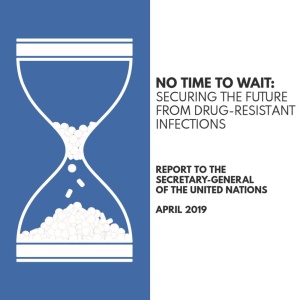
This report by the World Health Organisation calls for urgent action on the global and growing antimicrobial resistance crisis. It reports that “[a]larming levels of resistance have been reported in countries of all income levels, with the result that common diseases are becoming untreatable, and lifesaving medical procedures riskier to perform.”
According to the report, antimicrobial resistance is driven by many factors, including:
- Misuse and overuse of antimicrobials in humans, plants and animals
- Discharge of waste from healthcare facilities, pharmaceutical manufacturing and farms
- Lack of access to clean water and sanitation
- Transmission of resistant pathogens in the food chain
Drug-resistant diseases already cause around human 700,000 deaths per year, globally, and this could rise to 10 million per year by 2050 if no action is taken.
Due to the multiple interacting causes, the report recommends using a “One Health” approach to tackle the crisis in a way that considers the whole system. Recommended actions include:
- Phasing out the use of antimicrobials as growth promoters
- Strengthening regulatory frameworks and awareness among stakeholders to encourage responsible use of antimicrobials
- Invest in developing antimicrobial medicines and alternatives to antimicrobials
- Ensure that people who need antimicrobials have access to them, rectifying current inequality in access
Read the full report, No Time to Wait: Securing the future from drug-resistant infections, here. See media coverage here (The Guardian). See also the Foodsource resource Why does antibiotic resistance matter?












Post a new comment »